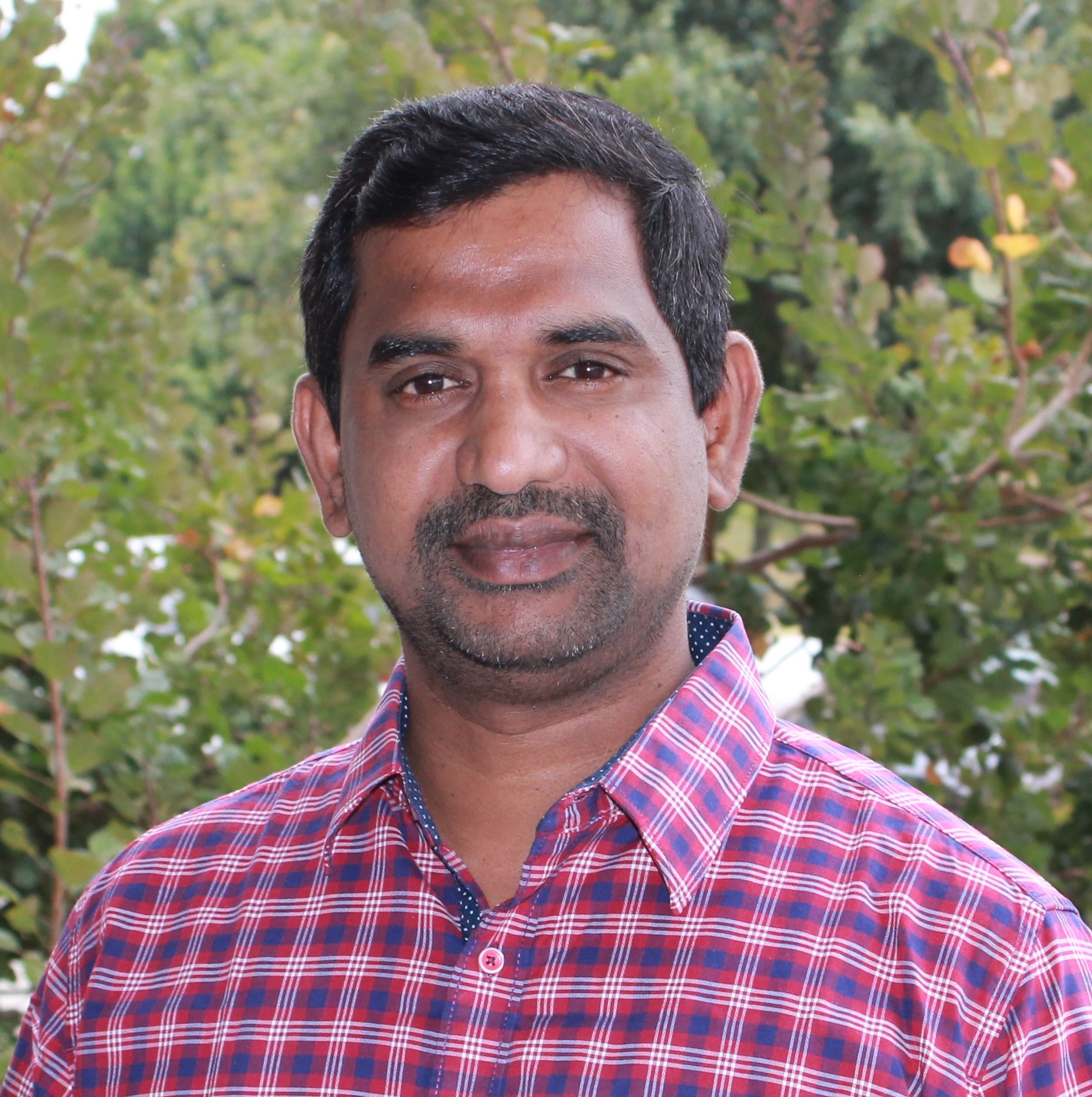New AgriLife Research genomicist plans to start at the molecular level to improve Texas crops
Jayakodi to focus on turfgrasses and controlled environment crops
Murukarthick Jayakodi, Ph.D., brings expertise in developing genomic breeders’ toolkits for crop improvement to his new position as a Texas A&M AgriLife Research plant genomicist and assistant professor in the Texas A&M Department of Soil and Crop Sciences.

The opportunity to work with less genomically characterized crops such as turfgrass is exciting because it leaves room for discovery and advancements that could help other commodity crops as well, Jayakodi said.
He said being based at the Texas A&M AgriLife Research and Extension Center at Dallas is ideal for him because the Texas A&M Aggie Turfgrass Program there has a strong breeding program with new varieties of zoysia, Bermuda and St. Augustine grasses.
“Many of these grasses already have tolerance to various climatic conditions, like drought, cold or heat, that we can discover and potentially incorporate into our commodity crops,” Jayakodi said.
From turfgrass to cereal crops
Generally speaking, turfgrasses already have a high resistance or tolerance to various climatic conditions that make them suitable across the state, he said.
“If we explore these properties at the molecular level, we can translate this knowledge into major cereal crops like wheat, barley, corn, sorghum and rice,” Jayakodi said. “These grasses are close relatives to major cereals, so they have a high chance of translation.”
For example, he said the zoysia grass they are developing at the Texas A&M AgriLife center at Dallas shares high genetic similarity with rice and sorghum. The translatability can be checked on major cereals if the molecular mechanism is found in turfgrass.
“Rice and wheat do not have the genetics to withstand the combined climatic stress such as drought and heat, but turfgrass does. So, we can use this as a genetic model system to understand how plant responses to multiple climatic stresses occur simultaneously.”
This work can also help improve the turfgrass itself, he said. Presently, turfgrasses face issues such as water use and drought, so the industry is looking for lower water-use grasses and those tolerant to various stresses such as drought, salt and diseases.
Studying the genetics of controlled environment crops
The Texas A&M AgriLife center at Dallas also specializes in controlled environment agriculture, where fruits and vegetables are grown indoors under regimented watering and climate conditions. Currently, most crop genetics are adapted to field-agronomic practices but have yet to be explored for these controlled conditions.
“Our researchers are exploring breeding crops that fit into the controlled-environment conditions, and as a genomics faculty member, I will try to understand the molecular level mechanism or genetic basis that contributes to the adaptation to a controlled environment,” Jayakodi said.
Drought, heat and flood conditions can’t be easily predicted in field crops, so those plants need a more flexible adaptability mechanism. But when grown in a controlled environment, crops experience fewer environmental variables, so the research may focus more on potential diseases.
Explaining another area of interest for his research, Jayakodi discussed how he will study the genetic mechanisms controlling plant architecture, which might need to be different for automated trimming and harvesting in a controlled environment.
“We need to understand the genetics for such a trait and how to harness them under controlled conditions,” he said. “It’s time-consuming for breeders to select desired characters visually in every generation, but if you have molecular tools like markers linked to the traits, we can select them efficiently.”
Jayakodi brings wealth of experience
Jayakodi earned his bachelor’s in bioinformatics from Tamil Nadu Agricultural University in Coimbatore, India, and his master’s and doctorate in crop science and biotechnology from Seoul National University, Seoul, Korea.
Prior to coming to Dallas, he worked as a group leader at the Leibniz Institute of Plant Genetics and Crop Plant Research in Gatersleben, Germany. He also serves as an adjunct professor at Tamil Nadu Agricultural University.
He created and is leading the fava bean pan-genome consortium that attracts international researchers from Canada, Germany, Denmark, Spain, Australia, the U.K. and Germany to identify genetic variations and link them to important traits.
“Pan-genome is a hot topic that is being applied to major crops such as wheat, barley, rice and corn,” Jayakodi said. “We are trying to apply it with potential minor crops to bring diversity in farmlands.”





